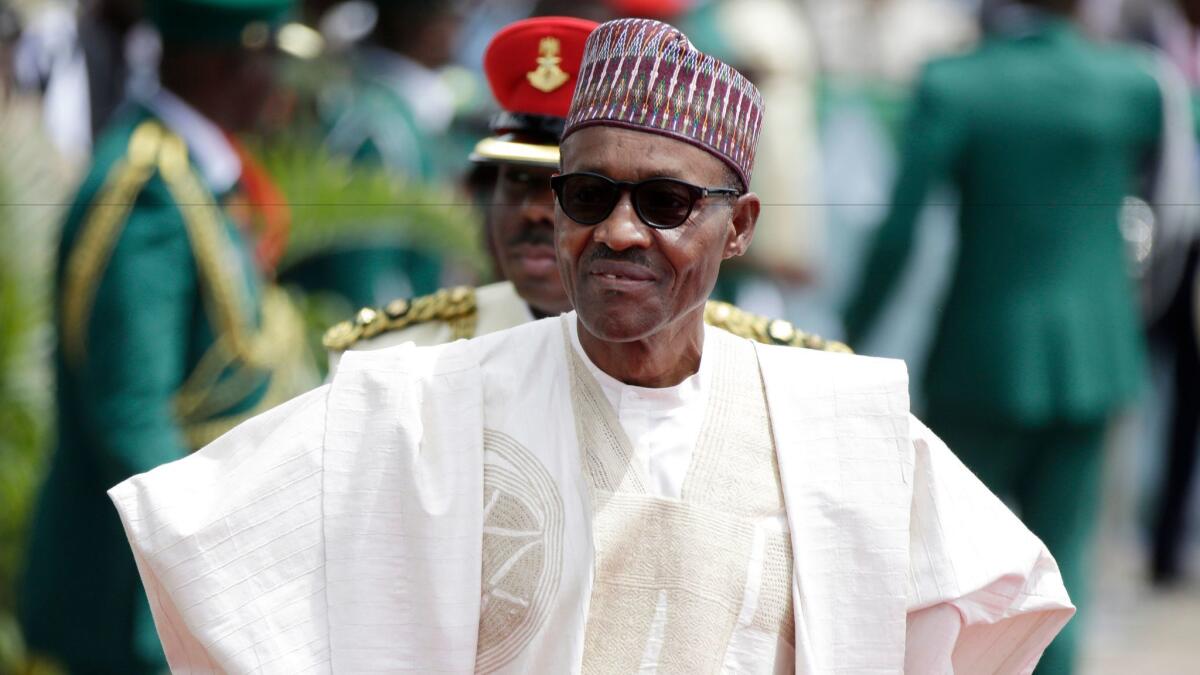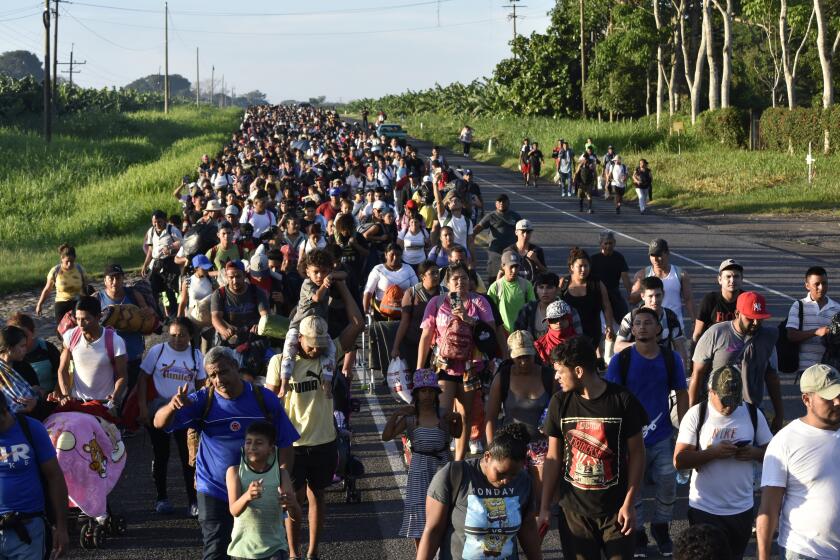Why attacks by Boko Haram are likely to continue even though it lost its last stronghold

Reporting from Johannesburg, South Africa — Nigerian President Muhammadu Buhari announced Saturday that the extremist Islamist group Boko Haram had been driven from its final stronghold in the Sambisa Forest on the border with Cameroon. But that is unlikely to end the violence.
“I am delighted at, and most proud of the gallant troops of the Nigerian army, on receipt of the long-awaited and most gratifying news of the final crushing of Boko Haram terrorists in their last enclave in Sambisa Forest,” Buhari said in a Christmas message to the nation.
Camp Zero, its main base deep in the forest, was destroyed Friday by Nigerian security forces, he said.
Still, its leader remains at large, 196 kidnapped schoolgirls remain unaccounted for, and the group’s deadly suicide attacks on markets, bus stations and other civilian targets are likely to continue.
For years, Nigerian soldiers frequently abandoned their posts rather than fight Boko Haram, an affiliate of Islamic State, allowing the group to gain control of a large expanse of northern Nigeria by 2014.
But in the last 18 months, Nigerian forces have consolidated their attack on the militants, forcing them to leave the major towns they controlled and to pull back to the dense Sambisa Forest.
The government has been pursuing them there, carrying out intensive airstrikes, sending in ground forces and building roads into the forest to clear out insurgent bases.
Between Dec. 14 and Dec. 21, Nigerian forces rescued 1,880 prisoners of Boko Haram who were being held in the forest. During that same period, 564 Boko Haram fighters were arrested, according to Maj. Gen. Leo Irabor.
As the militants fled, some simply blended into the local communities, making them difficult to trace.
“The terrorists are on the run and no longer have a place to hide,” the president said in his statement Saturday.
He also called for a redoubling of efforts to rescue the schoolgirls.
They are among 276 girls abducted by the militants in April 2014. Some escaped soon after they were seized, and a group of 21 were freed in October. Some of the 196 who are unaccounted for are believed to have died of disease or in airstrikes on the forest.
Nigerian authorities have frequently boasted of defeating Boko Haram or killing its leader, Abubakar Shekau, only to be proved wrong.
The group, which emerged in 2003 and is fighting to impose an Islamic state across Nigeria, has proved to be resilient. It has been almost wiped out more than once, notably in 2009, only to regroup.
Even as pressure on Boko Haram intensified, the group continued to carry out devastating suicide bombings, often using girls — teenaged and younger.
At least 56 civilians people died in a twin suicide bombing at a busy market in the town of Madagali in northeastern Nigeria this month.
Now Boko Haram will probably intensify use of its tactics of suicide bombings and assassinations. Six bombers, including five women, were killed Friday trying to detonate suicide vests, according to authorities.
Extremists continue to drive farmers from their land, making it impossible for them to plant crops, and many areas of the northeast remain too dangerous for humanitarian workers to access, as the region faces a severe hunger crisis caused by the conflict.
Among those worst affected by the crisis are people who fled their homes. About 14 million Nigerians are in need of humanitarian assistance because of the violence, according to the United Nations.
ALSO
The babies who are called ‘bad blood’ — the sad legacy of Boko Haram
In Nigeria, schoolboys turned killers and came after their ex-teachers and students
21 Nigerian schoolgirls released by Boko Haram will receive medical treatment, trauma counseling
More to Read
Sign up for Essential California
The most important California stories and recommendations in your inbox every morning.
You may occasionally receive promotional content from the Los Angeles Times.










